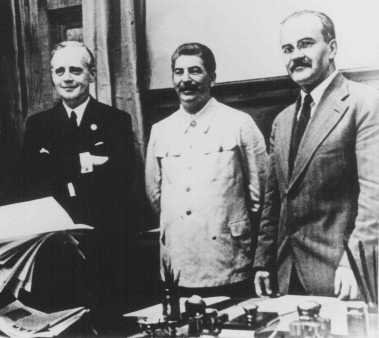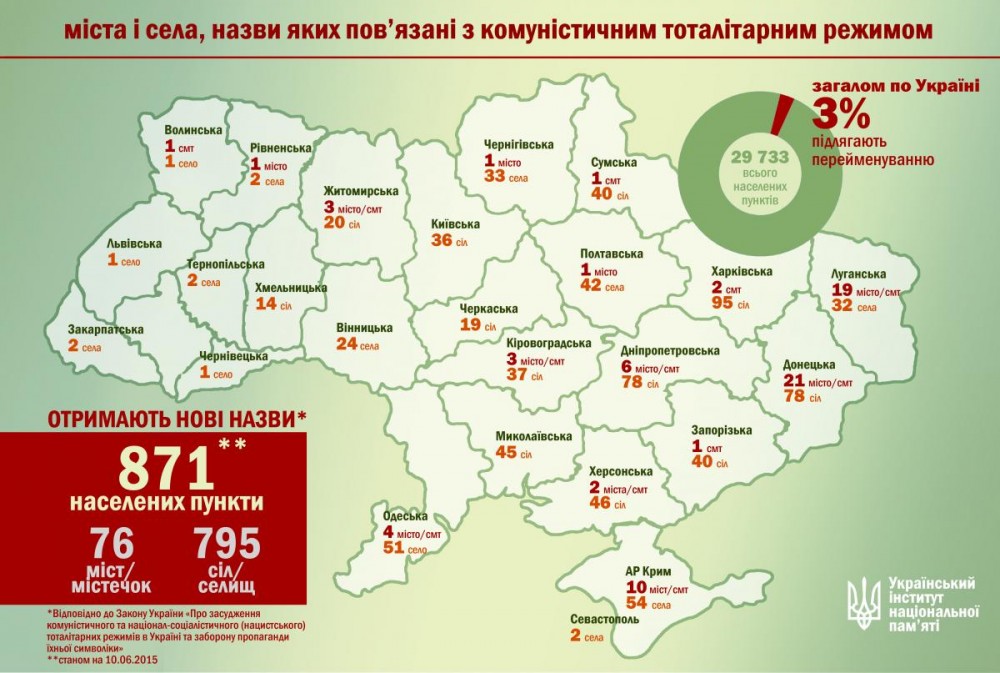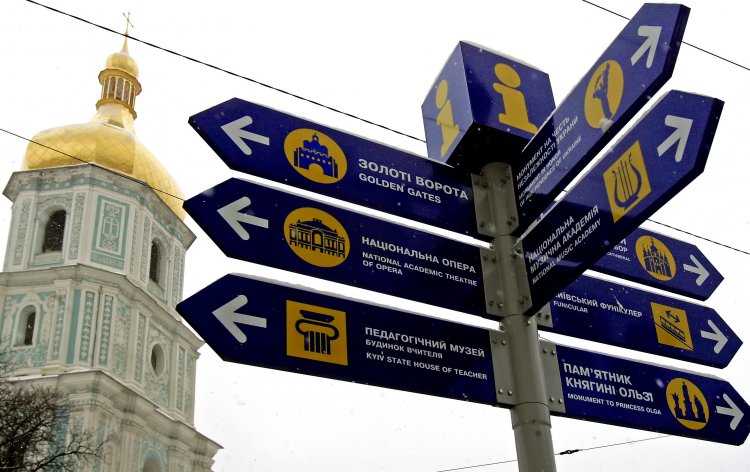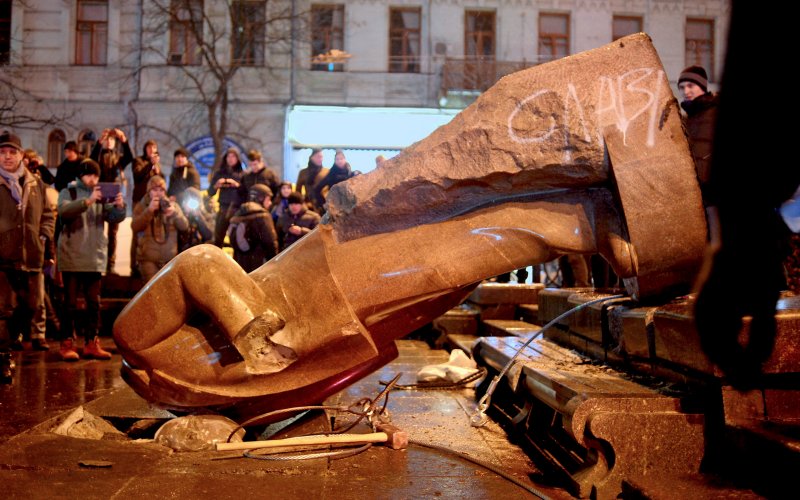"The German National Socialists, despite several flaws, enjoyed great popularity and support and were skilled organizers. They pulled their country out of a prolonged and severe economic crisis and instilled confidence in the future in the hearts of millions of Germans. Additionally, they created fair social laws and unified all of Germany into a single state, which was a worthy cause. Furthermore, there were never any death camps with gas chambers. All these stories are journalistic fabrications. Buchenwald and Mauthausen were correctional institutions for criminals and antisocial elements, where hard work freed the prisoners. Germany's war against Poland in 1939 was forced upon it, since official Warsaw was taking hostile actions and was oppressing ethnic Germans on Polish territory. It was not Germany that turned these limited operations into a worldwide conflict but rather it was Britain and France who declared war on the German state. As for Adolf Hitler, he was a tragic and heroic figure, a personally honest and dedicated politician who assumed full responsibility for the fate of his own people..."
Could you imagine an interview with similar statements on the site of Deutsche Welle, the German international radio and TV broadcasting station? You cannot? Neither can I. However, Deutsche Welle provides a platform for individuals who are firmly convinced that "there is no historical truth" -- in other words, when translated into simple language, that claims that Nazi death camps existed are no more valid than claims that they did not. However, for some reason, this applies only to Ukraine but not to Germany.
The interview with David Marples, professor at the University of Alberta in Canada, on the Deutsche Welle site
is called exactly that: "Historical truth does not exist." This professor (presented as a "researcher of contemporary Ukrainian subjects") is one of the initiators and signatories of the open letter to President Petro Poroshenko asking him not to sign the "laws on decommunization."
David Marples argues that the "laws were hastily considered and adopted, in only nine days… Besides, condemnation of the entire Soviet period is also cause for some concern. After all, this period includes, for example, the dramatic period of nation building in the 1920s and the so-called period of 'nativization' -- a period that is very different from what began when Stalin consolidated power."
Yes, of course, there are differences between certain periods of Soviet history. However, they are not hidden even in books on the history of the Communist Party, starting with the "Short course on the history of the CPSU" (core propaganda textbook under Stalin --Ed.). To employ current academic perspectives, the differences are primarily between "soft" and "hard" versions of Soviet totalitarianism, as well as between the two versions of world revolutions: the Lenin-Trotsky version (launch of a permanent revolution in the West with the help of the Comintern, designed to take over country after country) and Stalin's version ("revolution from the exterior" delivered to other countries on the bayonets of the Red Army). Should we condemn the "soft" totalitarianism? Of course we should because it gave rise to Stalinism. Incidentally, Stalin consolidated all power still in the 1920s, specifically in 1927-28, and, for a while, tolerated national development in Ukraine even though he severely restricted it. At the same time, in the fortunately short history of Nazi Germany, it is also possible to distinguish certain periods: the first 18 months of Nazi rule up to the destruction of the Stormtrooper group with Ernst Röhm and General Schleicher; then the 1935-1938 years (before Kristallnacht) when the persecution of Jews was lessened in order to achieve propaganda success with the Olympic games; then the mobilization period; then the war -- all these periods have significant differences. Additionally, how should the great success of Hitler's regime in overcoming unemployment and raising the living standards of Germans be treated?
Additionally, the professor claims that the laws "violate freedom of speech" because "indirect criticism of the OUN and UPA will be considered a humiliation of their dignity and therefore a criminal act." The most interesting word here is "indirect," whereby anything can be associated with anything. In my view, the laws focus on the right of Ukrainians to fight for freedom and the idea that a denial of that right is a mockery of the Ukrainian people. When it comes to the "violation of the freedom of speech," I recommend that the professor go to Israel and publicly condemn the right of Israelis to fight for the existence of their state -- both in the past and in the present -- and then to experience the consequences of such a statement.
Another important argument by the Canadian professor is that in Ukraine "the views on the Soviet legacy are too contradictory. A significant segment of the populations sees certain advantages in that period." Yes, they do. However, any European totalitarianism (except perhaps the Albanian one) is not confined only to terror but also proposes a certain level of well-being in exchange for freedom. Does this mean that the denazification of Germany should not have been undertaken?
Finally, Professor Marples plays his trump card. "In short, society is divided, and the two laws that we criticize only deepen the divide in this important time in the life of independent Ukraine." What can one say; this is a serious criticism. Indeed, Ukrainian society is in fact divided. But how is it divided? First of all, into the supporters of independence and the apologists for the "Russian World," into the supporters of democracy and the adherents of totalitarianism. Should this division be tolerated and efforts be made to find mutual understanding with forces and population groups hostile to everything Ukrainian? Or would a more appropriate approach be to neutralize these forces and groups that are undermining Ukrainian statehood?
In general, it appears the Canadian professor shares the ideology of Leonid Kuchma. After all, it was during Kuchma's reign that the government attempted to prevent the so-called "split of society" by flirting with supporters of a Soviet system and by not taking any realistic steps (except in the field of education) to break with the past and conduct a proper evaluation of "native" totalitarianism.
Well, later in the interview, Professor Marples begins to list almost anecdotal statements that indicate that he either knows very little about Ukraine and its post-Soviet reality or else he is deliberately spreading misinformation. But judge for yourself. In the interview there is discussion that one of the goals of the "decommunization laws" is to "divert attention from other problems facing the government: economy, inability to control the oligarchs, the generally unsatisfactory progress of the Ukrainian army against the separatist in the east, and so on." But is it possible to rebuild the economy without removing it from the remaining sovietism? Didn't the preservation of the monuments to Lenin, Nikolai Shchors (Red Army commander -- Ed.), Artem (pseudonym of Fedor Sergeev, Belshevik revolutionary), Stanislav Kosior (one of the principal architects of the Ukrainian Holodomor), which symbolize the inviolability of the relationship of complete dependence by workers on the authorities, contribute to the consolidation of oligarchy? And couldn't the inadequate actions of the Ukrainian troops be explained primarily by the fact that (especially at the level of the "parquet generals") the Augean stables have not been cleaned of the remaining "Soviets"?
Another anecdote appears. "During Yanykovych's time the parliament, with a Party of Regions majority, never raised the issue of historical memory." Really? Under Yanukovych, remember, Valeriy Soldatenko, a member of the Communist Party of Ukraine, was immediately appointed to head the Institute of National Memory. With the help of completely absurd court decisions, from the perspective of facts and logic, Stepan Bandera and Roman Shukhevych were deprived of the titles of Hero of Ukraine, which had been posthumously awarded by Viktor Yushchenko. Everything Soviet was emphasized, especially on May 9 and June 22 (date of Hitler's invasion of the Soviet Union). And during the official commemoration of the 70th anniversary of the defense of Odesa, official claims were made that the city had resisted for so long because 300 miners from Donetsk arrived by sea and with no weapons and armed only with only sapper shovels managed to push back enemy soldiers from the city (who also numbered 300, but in this case, thousands.) What was this other than a policy of recreating Soviet historical mythology in its most ridiculous form?
And the professor's last anecdote: "In Russia today, they (the Communists) form the main opposition." No comment.
Finally, here are the conclusions for today from this specialist on Ukrainian matters from across the Atlantic: "It is possible (!!!) that there is a certain nostalgia for the Soviet past in segments of eastern Ukraine, but I consider it harmless." Is Professor Marples really unaware of sociology? And is he really not familiar with the survey data indicating that such nostalgia was most prevalent in the Donbas? This "harmless" matter was expertly manipulated by the Kremlin and Lubyanka (Russian state security), resulting in thousands of casualties and millions of refugees. But the professor appears not to notice; he is fighting OUN-UPA.
Another conclusion: "If the goal is to look for a unifying symbol from the past, then there are other, better ones, for example Taras Shevchenko. Since the state needs a version of history of the 20th century, this must be achieved through consensus, based on a thorough, objective and free inquiry." One can only laugh. This "expert" on Ukraine does not know that for a significant minority of Ukraine's citizens, Taras Shevchenko is not a unifying symbol at all. Let's just remember the books and articles of Oles Buzyna about the "Ghoul Shevchenko," which came out in multiple editions and were printed in mass circulation newspapers. These texts had and have their fans, some of whom are currently fighting against Ukraine or engaged in subversive activities as a "fifth column." And most importantly, Professor Marples persistently demands consensus between the apologists of totalitarian ideas and the supporters of democracy. But this means surrender or at least the defeat of the democrats. In European history there has never been any other outcome. And another thing, to demand consensus of all the citizens of Ukraine next door to Russia and its massive propaganda is at the very least feeble-mindedness or blasphemy. Or something much worse -- outright work for the Kremlin and Lubianka.
But good riddance to these "experts." Their position is clear. The question is why is Deutsche Welle publishing such statements. And if they do, then why don't German officials and mass-media provide a forum for Hitler supporters as well? Since "historical truth does not exists," and since refusal to provide such a forum is contrary to "freedom of speech," couldn't one say that denazification was a terrible blunder? Or is it perhaps that there are different rules for the untermensch (subhumans), the category in which some appear to place the Ukrainian people, than for representatives of the "civilized world"?
Note: Serhiy Hrabovskyi, PhD, is a Ukrainian journalist, historian, political commentator, senior researcher at the Institute of Philosophy at the National Academy of Sciences of Ukraine, and author of more than 10 academic and popular books.





